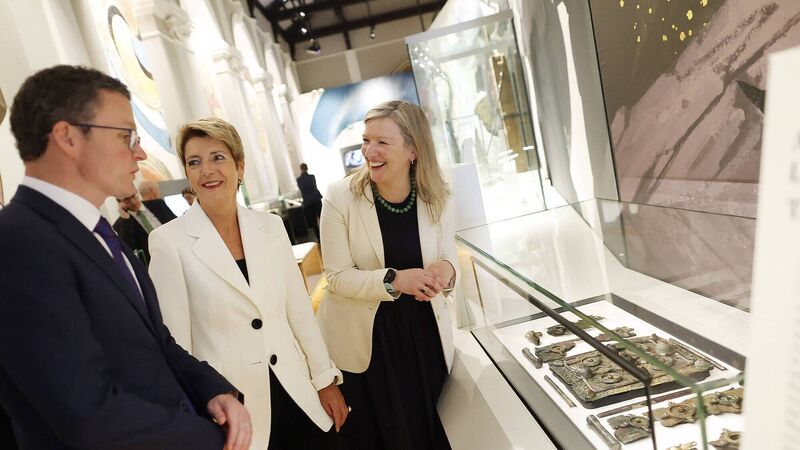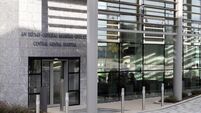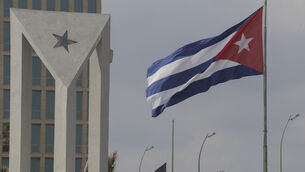Irish Examiner view: Reaching outward is in the Irish nature

Patrick O’Donovan, Karin Keller-Sutter, and Maeve Sikora at the St Gall exhibition at the National Museum. Picture: Julien Behal
One of the great tragedies of politics is where leaders only concern themselves with the internal, rather than seeing their nation as part of a greater network.
















